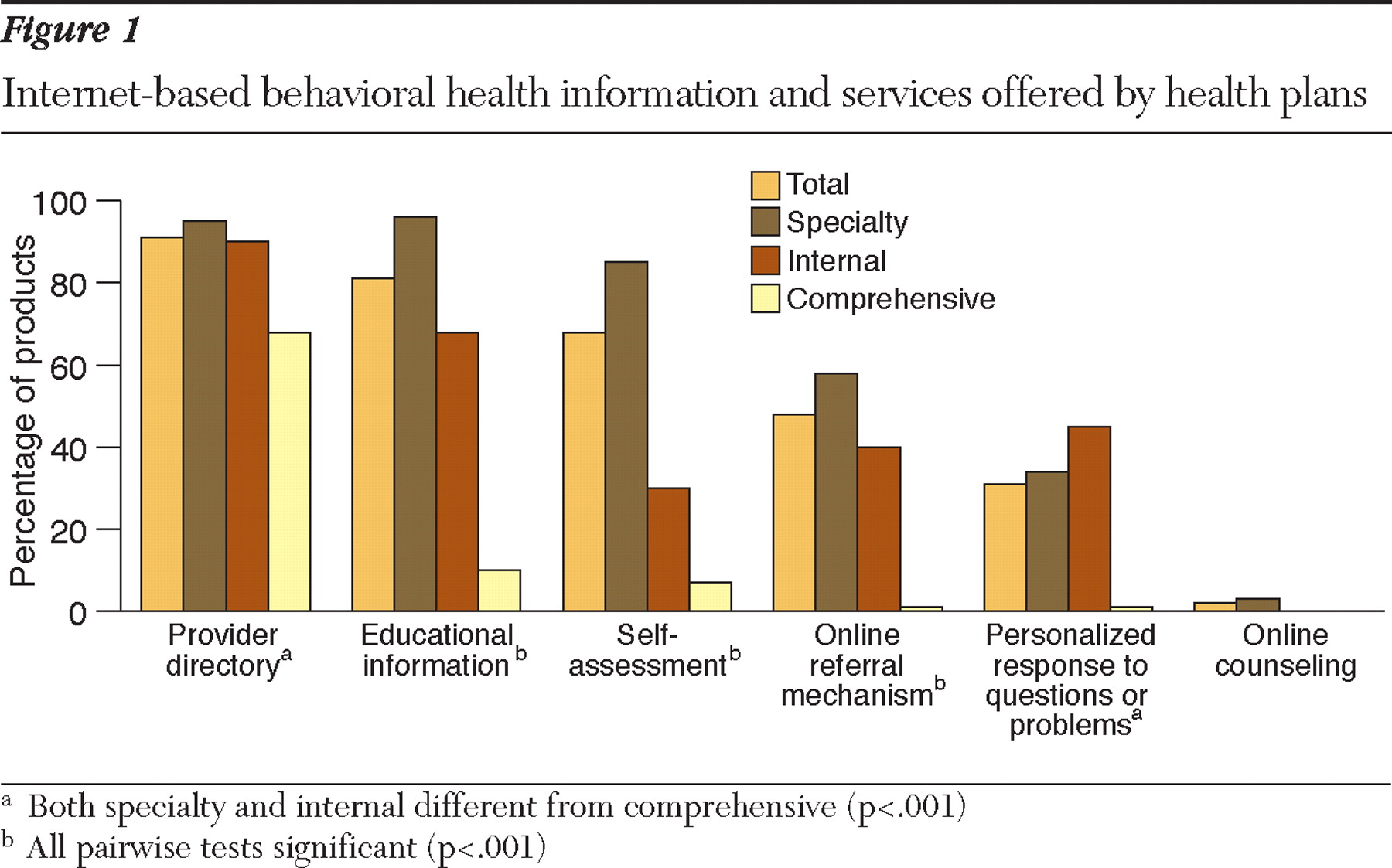Forty percent of individuals with Internet access use it to obtain health information (
1 ). Despite the increasing salience of the Internet, little systematic information exists on the prevalence of health plan-sponsored online resources for behavioral health.
Data presented are from a nationally representative survey of commercial health plans sampled from 60 nationally representative market areas. A total of 368 of 441 eligible plans (83%) responded to a survey on alcohol, drug abuse, and mental health services in 2003. Medical directors indicated whether each of their three largest products offered Internet-based resources via e-mail, Web sites, or Internet-based videoconferencing. Data are weighted to reflect national estimates. We examined differences by three product types (health maintenance organization [HMO], preferred provider organization [PPO], and point-of-service plan [POS]) and three behavioral health contracting arrangements (specialty managed behavioral health care organization, comprehensive contracting with a single vendor for general medical and behavioral health, and internal behavioral health services provided by plan employees or a network administered by the plan). Analyses were conducted at the product level.
Most products offered online provider directories and educational information (
Figure 1 ). Two-thirds offered behavioral health self-assessment tools, and almost one-half provided online referral. About one-third provided personalized responses to problems. Only 2% offered online counseling. Products with specialty contracting were the most likely to offer online services. Products with comprehensive contracting rarely offered most online services. HMO and POS products were more likely to offer online services than PPOs (data not shown). For example, about a third of HMOs and half of POS products offered personalized responses online, compared with less than 10% of PPOs.
For-profit plans were more likely to offer online patient self-assessment, referral, and personal response to questions. Products in the Northeast were more likely than those in other regions to have online directories, self-assessment, educational information, and online referral (data not shown.)
The survey found that health plans frequently used the Internet to provide information but used it less often to provide clinical services directly. Delivering behavioral health services, such as counseling, via the Internet certainly raises more complex clinical, professional, privacy, and legal issues than, for example, offering educational information. At least in the short term, increasing use of Internet-based tools designed to facilitate and complement traditional clinical services seems likely.
Acknowledgments and disclosures
Funding was provided by grant R01-DA-10915 from the National Institute on Drug Abuse and grant R01-AA-10869 from the National Institute on Alcohol Abuse and Alcoholism. The authors thank Deborah Garnick, Sc.D., Dominic Hodgkin, Ph.D., and Frank Potter, Ph.D., for their contributions.
The authors report no competing interests.


